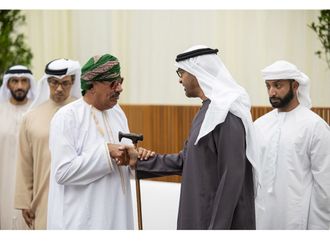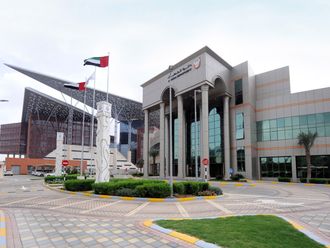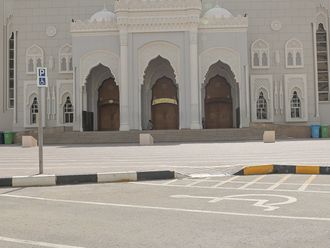
For any person who wishes to get global exposure and access to the best educational facilities, studying abroad will always be a dream. It hasn’t been any different for students in the UAE. Over the years, the number of Emirati students seeking educational options abroad has been steadily rising, with the increase being as high as 30-40 per cent over the past three to four years.
And while the US and UK still remain popular destinations, here’s what you need to consider when planning to study abroad.
Major countries
Though the US offers more variety in terms of universities and programmes, it is arguably the most expensive in terms of tuition and living costs.
The cost of education in the UK depends on the university, location, course and accommodation.
India is also emerging as a viable option for students in the UAE, due to its proximity and relatively lower costs — while a professional degree in the US could cost anything between Dh40,000 and Dh170,000, the same could cost just Dh50,000 in India. “While India has underperformed in overall university rankings, a discipline-specific approach is better attuned to the nation’s particular focus on science and technology,” says Ben Sowter, Head of Research, QS, which publishes World University Rankings annually. “The fact that four Indian universities can now point to global top 50 rankings is an unprecedented achievement.”
Countries such as Canada, Australia and Singapore are other feasible options.
Interestingly, it is the performance of universities outside of the traditional US-UK elite that provides the rankings’ main talking point. Universities from 17 different countries make the top 20 in at least one discipline: the US, UK, Australia, Canada, Switzerland, Italy, France, Germany, the Netherlands, Ireland, Sweden, China, Singapore, Hong Kong, Korea, Japan and Brazil. “Global competition to develop research capacity and attract international talent is shaking up the established order,” says Sowter. “The financial crisis has eroded the ability of leading universities in the US and UK to monopolise world-class researchers and students.” Asia accounts for about a quarter of internationally leading institutions in engineering, mathematics, chemistry and material sciences. “Countries in Asia, Australasia and parts of western Europe have increased their research budgets in a bid to foster innovation,” says John O’Leary, Editor, Times Higher Education. The top five higher education systems were found to be in the US, Sweden, Canada, Finland and Denmark.
Choice of course
When choosing your college, first identify your career goal. Once you’re clear about what you want to do and the countries and degrees/courses you wish to apply for, research. Look up websites, brochures and listings of student communities to know more about the programme, university, faculty and student life in the area. It is also a good idea to contact admissions officers, faculty members and ex-students/seniors directly, with specific queries. Check out admission requirements, recognition of the courses and the cost of studies and living. Keep in mind that employers and other universities only recognise degrees from accredited universities. It’s also imperative to assess any university’s records with campus recruitment. Successful recruitment will give you a higher chance of landing a job after your course.
In most countries the cost of tuition in public universities is less than in private universities. However, in reputed private universities, the student-to-faculty ratio is always better, leaving room for individual attention.
While rankings shouldn’t be the only criterion for judging the worth of the institute, they can be an effective pointer. Trust the reliable ones such as the QS World University Rankings, Times Higher Education World University Rankings and the Newsweek University Rankings. These will also indicate which universities offer financial grants to foreign students.
In the UAE, the Scholarship Coordination Office (SCO) — Ministry of Presidential Affairs manages the Distinguished Students Scholarship and Study Abroad Scholarship programmes. The SCO annually selects outstanding Emirati students to study abroad at international universities. It provides scholarship students with competitive monthly salaries, full university tuition fees, health insurance, an annual air ticket and a book allowance. The EDAAD scholarship programme sponsors and encourages UAE nationals to pursue their education at top-ranked universities worldwide.
Student loans
Another way to facilitate foreign education is through a student loan. Abu Dhabi Commercial Bank and Mashreq Bank among others offer student loans. The most important aspect to keep in mind while choosing loans is getting the right repayment plan. The three main types of repayment plans are: standard repayment, consolidation, and income-based repayment (IBR). The standard repayment plan is the default option unless you request one of the others. You pay off your loans in ten years. With a consolidation loan, all your loans are combined into one single loan, with an extended repayment period of generally 15 to 30 years. Under the IBR, payments are adjusted on a yearly basis depending on gross income.
Exchange programmes
Any experience of studying abroad is incomplete without student exchange programmes. Apart from the personal benefits of self-development, successful student exchange stints imply your ability to merge into different cultural and community perspectives — an essential skill if you’re planning to work with major multinational corporations. Acquiring a foreign language is also a strong plus.












